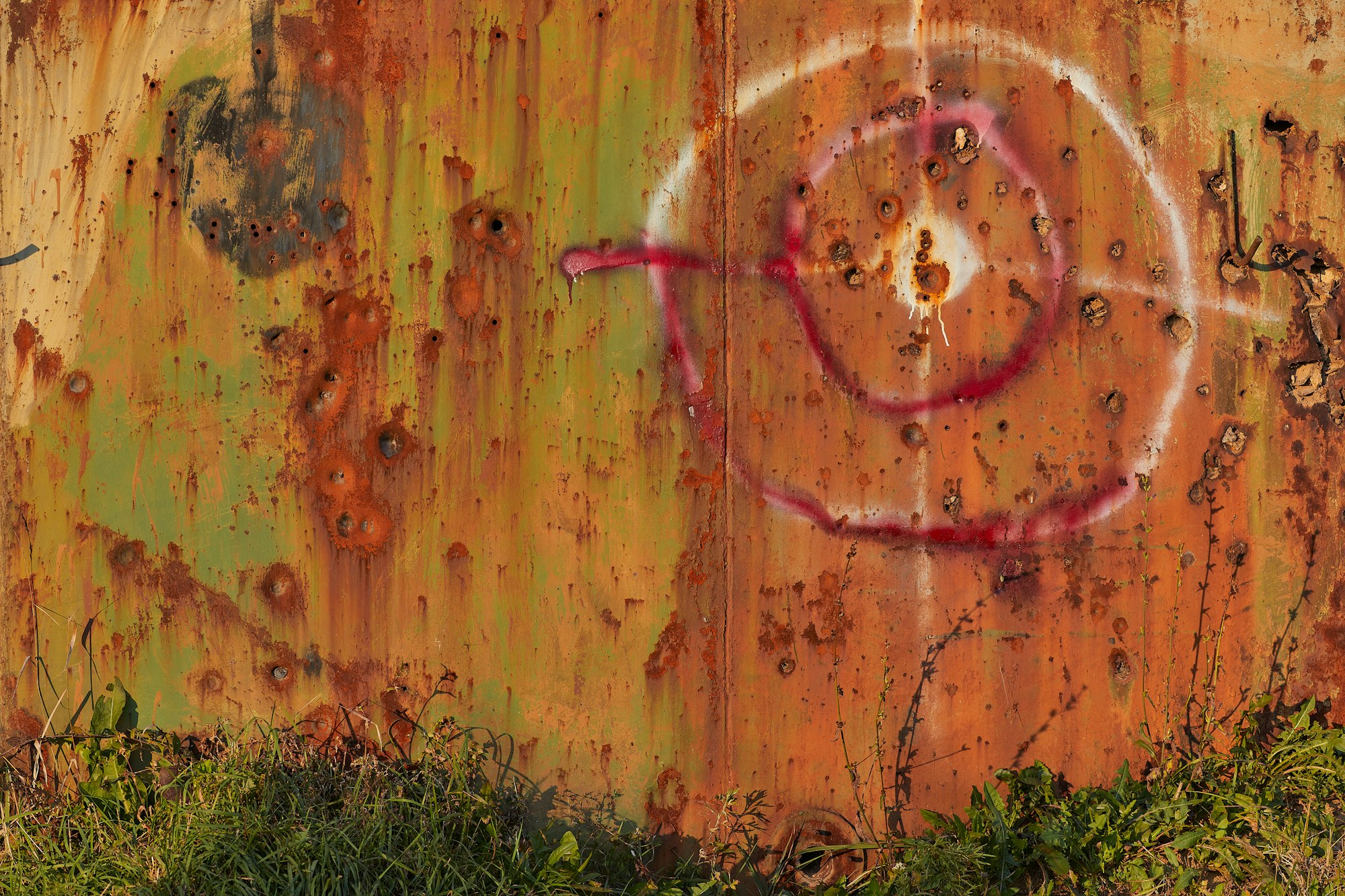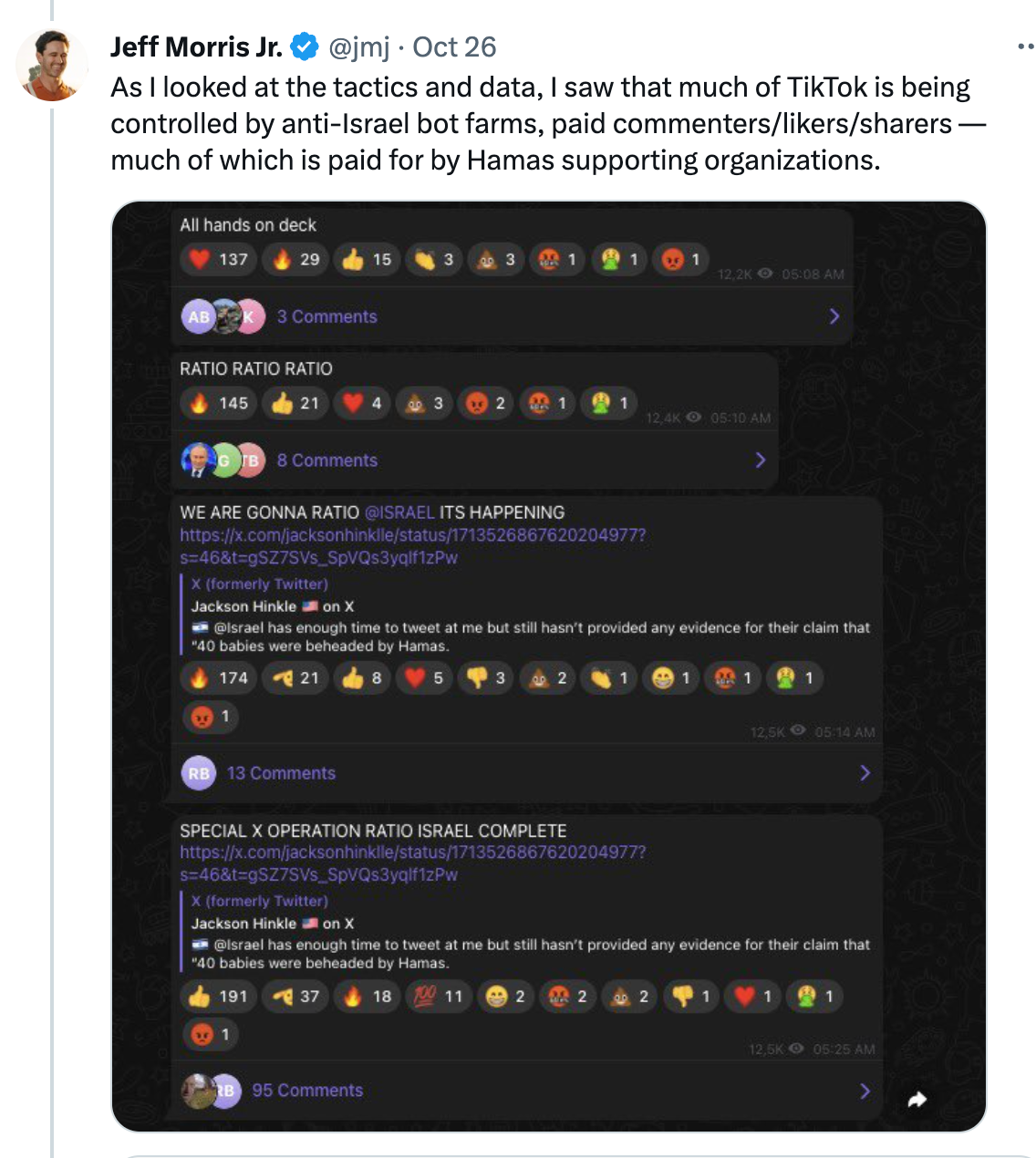In the Hamas-Israel information war, a prime target is us

You've likely seen that disinformation about the Israel-Hamas conflict is polluting feeds around the world. Some examples:
- Images from other conflicts are being repurposed by disinformation purveyors as images from the Israel-Hamas war. The New York Times piece from November 2 quotes a photographer whose coverage of the war in Syria was misappropriated.
- Disinformation research firm Alethea found that a network of 67 X/Twitter accounts has been spreading coordinated false or inflammatory content about the conflict, as reported by NBC's Kevin Collier in October.
- Fact checkers at Reuters revealed that a video of a woman being burned alive that was shared on Facebook as the work of a "Palestinian mob" wasn't recorded in the Middle East at all; it was from an incident in Guatemala in 2015.
- PBS clarified that the source of the Gaza hospital bombing was a Hamas rocket, not an Israeli one as Hamas claimed (and trusted outlets reported).
What's going on here? Writers for the RAND Corporation's blog explained that strategically, "the war is about perception, telling a story about who is the victim and who is the aggressor. And if the prelude to the invasion of Gaza is any indication, lies, mistruths, and disinformation will play a key and continuing role in this fight."
Two stories in particular show the impact the onslaught of propaganda and disinformation has had on students and campuses.
First, some critical context
Last Friday's episode of The Daily traced Israeli-Palestinian strife back to when Israel declared independence in 1948. I wish every American with views on the situation would listen. Here's my Threads post so you can see what that platform is like as well.
Post by @dtroustView on Threads
I appreciate The Daily for digging deeply into current events. I also love how its episodes can run in the background while you're doing other things.
Threats against Jews at Cornell
On Saturday October 28 an anonymous poster on a Greek life message board called for the murder and rape of Jews on Cornell's campus in central New York, including a pledge to shoot up a dining hall that offers kosher food.
The messages were so over the top that it seemed like the work of a troll who joined the conversation from somewhere else; a lit match, tossed onto the powder keg that is so many campuses right now. It did not seem like a legit threat from a student currently attending my alma mater, which has a sizable Jewish population.
Yes, there's a bit of bias in my reaction, but I did my homework and reached out to a number of folks in the disinformation research space for validation. I posted my opinion on LinkedIn on Halloween evening at around 6:15, then rushed out to set up for trick or treaters in the alley.
Later, around 10, I saw an NBC story that said the threats were in fact posted by a Cornell student – a junior engineering major from the same Rochester suburb where a Jewish friend of mine grew up.
Floored, I thought – well I got that wrong. The next morning I realized I was both right and wrong. The student attacker was a troll, he just came from inside the community rather than outside.
A search for answers
The Social Media Victims Law Center defines trolling as "the act of posting harassing and humiliating comments on social media platforms to elicit a negative response from one or more recipients."
However we characterize this student, the question is why. What would cause this student to risk his future by threatening the safety of his Jewish peers?
His parents, interviewed by the New York Post after their son's arrest became public, said that he had struggled with depression and had taken two semesters off to recover. Now all over the news, the family hopefully has some support.
But the relationship between mental illness and violence is complex; when people with mental illness do perpetrate violence, which is rare, they typically have a serious diagnosis and often a co-occurring disorder like substance use as well.
Perhaps hatred of Jews prompted him to post. Antisemitism has persisted since the early days of the Christian church and is exploding around the U.S., and not only related to the conflict. The X/Twitter CEO, for example, began blaming the Anti-Defamation League for his revenue woes early this year.
Both of these rationales, though, ignore the influence of the messages folks see online, which can be one-sided, graphic, targeted and persuasive – especially for always-online individuals, like many in Gen Z.
As we saw in tragedies like the shooting at a Tops supermarket in Buffalo and a synagogue in Pittsburgh, online content can inspire violence – in these cases, an idea known as the "great replacement theory" that claims Democrats are importing immigrants into the U.S. because they'll vote blue. It makes no sense, yet has been cited by shooters in these and other incidents.
The student made his threats online. We need to understand where he got his information online, beforehand.
That Hamas is banned on the major social media platforms hasn't seemed to matter in the flow of propaganda related to the war; its followers appear to have shifted to Telegram, where numbers tripled since the October 7 attack. Hamas representatives have been filming and broadcasting their own violence as a show of strength, with content so extreme that Telegram – a messaging app popular with far-right groups – joined the club and banned them as well, on October 26.
Division and emotion are fertile ground for propagandists. Campuses have been at odds about the Israel-Palestine situation for decades and are grappling with free speech issues today. Last March, a Gallup poll found that Democrats, Millennials and likely Gen Z had shifted sympathies from Israel to Palestine.
When critical context is missing
Unfortunately, the role of propaganda can get lost in the cultural debate in mainstream media coverage. An opinion piece in the LA Times from October 18 explored whether pro-Palestinian campus protests are driven by antisemitism or colonialism; a New York Times article from today called them the newest front in the culture wars between Democrats and the GOP. Neither mentions the influence of one-sided messages that have no doubt been circulating for months, even years now.
Sources that study disinformation, like DFRLab, offer more context – from bursts of conflict in Gaza that traversed social media over the past year to a fake account posing as the Jerusalem Post that spread the rumor that Netanyahu had been hospitalized. Check out the excellent analysis "In Israel-Hamas conflict, social media become tools of propaganda and disinformation," from October 12.
Meanwhile, today's campus protests are not the sit-ins I remember from my college days. At Harvard, after the coalition of 30 student groups signed a letter that managed to blame Israel for its own people being slaughtered, the students were doxxed online, their siblings threatened, their names added to a no-hire list demanded by Wall Street execs. A truck drove around Cambridge with their names plastered on the side, hired by a conservative group.
I'll be watching as this story unfolds. Some good follows are NBC's Tom Winter (@Tom_Winter on X/Twitter) and the Cornell Daily Sun reported that there were Islamophobic posts on the message board also, and that pro-Palestinian groups on campus were speaking out in support of their Jewish peers.
In the meantime, a 21-year-old who had a seemingly bright future is sitting in custody.
The weaponization of TikTok
NBC disinformation reporter Ben Collins recently shared a series of tweets from Jeff Morris, a former VP at Tinder, that got my attention. Morris asked a question similar to the one I pose above
The TikTok War: Why High School & College Kids Are Getting The Wrong Information about Hamas & Israel
— Jeff Morris Jr. (@jmj) October 26, 2023
I spent the weekend trying to reverse engineer the TikTok algorithm, as I am convinced this is the reason we're losing the information war with high school & college students.
(The word "wrong" bothers me too, but bear with me here.)
My high school-aged daughter, a quite savvy and balanced information consumer who's an editor for her school paper, shared her own pro-Palestinian views with me recently. When I probed she was pretty resolute.
I told her that when I visited with Jewish friends from college the weekend prior they'd shared how devastating the days since October 7 had been for them. Some have family in Israel; all were re-experiencing the historical trauma of a genocidal past and a lifetime of discrimination. They told about how frustrating it was when institutions fail to strike the right tone in statements about the war.
At a dinner recently, other friends shared empathy for the people of Gaza informed by years of testimony about their apartheid-like treatment from a Palestinian family we know. One shared about the many Palestinians who had emigrated to his home country in South America. I shared how conversations in the dog park with Miko Peled, an Israeli who advocates for justice for Palestine, made me feel my understanding of the situation was incomplete.
But these friends have paid attention to events in the region for decades; students marching with pro-Palestinian signs through their high school in San Francisco don't have the benefit of that perspective. Yet a recent poll found a majority of young people nationwide felt Hamas's murderous rampage was justified.
Propaganda is information that's designed to persuade, whether it's true or false; it's influential and it spreads fast.
Bots and paid engagers
Last October Pew Research found that a growing number of Americans are getting their news from TikTok. The previous July, TechCrunch reported that a senior vice president at Google's claimed that young people were using TikTok instead of Google maps or search. Pretty good for a platform that only launched in the U.S. in 2016.
TikTok has also been a vector for disinformation about voter fraud, the war in Ukraine and this conflict as well.
Here's the ah hah moment in Morris's thread:

Bots and paid commenters have been targeting TikTok users with pro-Palestinian propaganda. As usual, follow the money.
A quagmire for users
On TikTok, a user who pauses for even a second on a pro-Israel or -Palestinian post may find themselves with a landslide of similar content. It's not a stretch to think it would influence their take on the situation, especially if they see similar messages over and over, from friends they trust and on other platforms.
To be clear: My point here is not whether anyone's take on this issue is valid or "right"; I know many takes predate the conflict. What I object to is when people's viewpoints are unduly influenced by propaganda and sometimes, straight-up falsehoods that are pushed by foreign actors, bots and influencers, enabled by a black box platform like TikTok that continues to make billions off your data regardless. It's difficult to navigate and is affecting how we acquire knowledge, see the world, treat other people, stay safe and sane and participate in democracy.
What to do
We can all take conflict-related content that's not from a legitimate and verified news outlet with a huge grain of salt, or dismiss it altogether – especially if the content originated on TikTok. We can be skeptical when content is largely or entirely one-sided and remember that visuals are a favorite of manipulators due to the emotion they spark; these require special scrutiny.
If you see something that may be suspect, try Googling language you see in the caption and add "fact check" – i.e., "girl burned alive by Palestinian mob fact check" – if there's a fact check out there it'll probably turn up.
Young people using TikTok for news and online search is also a troubling trend.
If you're the person who pays for a kid's phone you can insist they follow legitimate news sources on any social media app they use. If not they have to delete it. I'm not kidding here. And make sure you watch for imposter accounts; for every legitimate stream there are a few. You know, just to make things even more interesting.
Here's the real NPR feed on TikTok as an example:
@npr
Uncles, aunts, teachers, grandparents, older siblings: Ask to see kids' TikTok feed; they'll love to show you. Look for a not-annoying way to warn them about being manipulated. No one likes that.
Taking a breath
My hope is that we can band together in deepening our understanding of these dynamics and reduce the influence of those that are using this conflict to fracture communities around the world. I also understand the anxiety we're all feeling right now; it seems things are spinning out of control.
When I shared the above tweets with my daughter, she listened, and did not have as black-and-white a view as it had seemed. Her friend shared that they'd been seeing more pro-Palestinian content than usual on Instagram, for many months before the conflict. Hmmm! We all learned something and were happier for the conversation.
Social media makes us see things in the binary; with a complex web of politics, religion, genocide, occupation and authoritarianism this conflict is anything but that. You can be for the Jewish and Palestinian people under attack and against the policies of governing bodies. But that's my take; your viewpoints are your own, informed by your own background, conversations and the information you see.
The only real experts are those on the ground, but we can talk to friends who are closer to the conflict and take in first-hand accounts like this one, from a mom whose son was kidnapped by Hamas. His friend, who was killed, managed to save lives beforehand by throwing the grenades the terrorists tossed into their bomb shelter back through the doorway, one by one.
Comments are open if you feel inspired.
Deanna Troust is founder of Truth in Common and 3 Stories Communications. Visit www.truthincommon.org or follow Deanna on LinkedIn, X/Twitter, Threads or Instagram.

